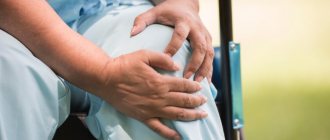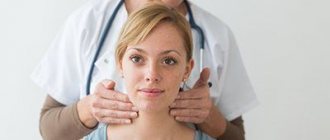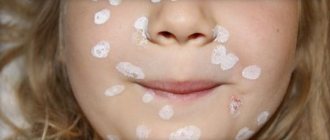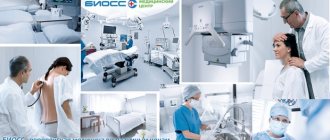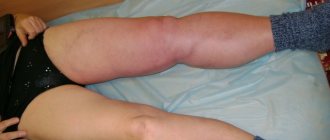The mammary gland is a distinctive feature of an entire zoological class - the class of mammals.
From the birth of a child to the later years of life, the mammary gland changes its appearance many times - starting with a small bud, it goes through its exciting heyday and ends its life in fading calm.
The mammary glands begin to form in the 6th week of intrauterine life. From the moment of birth until puberty, the ducts in the mammary glands lengthen and the nipples enlarge. During puberty, rapid lengthening and branching of the ducts, formation of glandular lobules, and changes in the morphological structure of the mammary gland occur. Connective tissue forms 2 zones: intercellular and interlobar (supporting lobes), subject to hormonal influences. After full puberty, the mammary gland stops developing until the second trimester of the first pregnancy. Thus, from puberty until the end of the first pregnancy, the epithelium of the mammary glands is immature, it is not able to respond to its own circulating progesterone, and this becomes a risk factor in the development of breast cancer.
The mammary gland is extremely dependent on the cyclical physiological processes of the body. In practice, the mammary gland is never at rest, regardless of the woman’s age. Constant variability in the structure of the mammary gland, sensitivity to sex hormones, thyroid hormones, dependence on sexual comfort and the state of the emotional status of a woman, lead to the frequent occurrence of dysplastic processes in this gland, which are most often combined with the term mastopathy or fibrocystic disease.
Mastopathy or fibrocystic disease is a general name for benign changes in the mammary glands, which differ greatly in anatomical features, clinical manifestations and the danger of malignancy, which forces us to consider mastopathy as a precancerous disease.
Causes of the disease
There are a huge number of reasons for the occurrence of pathology. The main ones are:
- Stressful situations that are present in the life of every woman (dissatisfaction with their marital status, as well as their position in society, domestic conflicts, conflict situations at work) since any stress is accompanied by various functional disorders of the neuroendocrine system.
- Factors of a sexual nature.
- Reproductive factors (number of pregnancies, births, abortions, age at pregnancy and childbirth, duration of lactation, time of first menstruation and menopause, etc.).
- Gynecological diseases and, first of all, inflammatory processes in the pelvis.
- Endocrine disorders (thyroid dysfunction, metabolic syndrome, polycystic ovary syndrome, diabetes mellitus types 1 and 20, etc.). Pathological processes in the liver and bile ducts. Hereditary (genetic) predisposition.
Indications
Prevention of mastopathy of the mammary glands is regular self-examination, which should be performed once a month. Self-feeling of the mammary glands must be carried out in a standing and lying position; it is also important to examine the condition of the nipples and check for any discharge from them. Regular preventive visits to a gynecologist and mammologist are also recommended to prevent the occurrence and development of mastopathy. Control of hormonal levels, properly selected nutrition, diet and regular physical activity are indications for mastopathy.
The list of reasons contributing to the occurrence and development of mastopathy makes it difficult to prescribe an unambiguous prevention regimen. The following should be avoided: stress and depression (as a preventive measure, it is recommended to take medicinal sedative medications - valerian, motherwort), creating a cozy and calm environment, positive thinking. Also indications for mastopathy of the mammary glands are:
- well-thought-out nutrition without excessively fatty and difficult-to-digest foods;
- control of the absence of excessive body weight, obesity, but mono-diets and untested methods of weight loss are contraindicated;
- One of the negative factors for women is caffeine consumption. Women need to limit or exclude it from the diet, and not drink strong coffee in the morning before meals.
Symptoms of mastopathy
For mastopathy, the most typical complaints are:
- breast tenderness,
- a feeling of increasing their volume,
- engorgement and swelling of the glands,
- the presence of clear or colostrum-like fluid discharge from the nipples of the mammary glands.
Pain may radiate to the armpits, shoulder and shoulder blade. The most common is a combination of symptoms of mastopathy and premenstrual syndrome. The main complaints in these conditions are: headache (often migraine-type), swelling of the face and limbs, nausea, less often vomiting, impaired bowel function, flatulence. With the neuropsychic form of premenstrual syndrome, complaints such as irritability, depression, weakness, tearfulness and aggressiveness may be associated. Difficulties in determining the cause of pain are due to the fact that pain can occur not only with pathology of the mammary gland, but also with cervicothoracic osteochondrosis, radiculoneuritis, intercostal neuralgia and is eliminated with appropriate therapy.
What is breast mastopathy
Mastopathy is a common breast disease that affects up to 80% of women at all ages. The pathology is associated with hormonal imbalance, which causes breast tissue to enlarge. Most often, these processes are influenced by female sex hormones - androgens, progesterones and estrogens.
They are produced in the ovaries. Therefore, any disruption in the functioning of these organs can lead to mastopathy. The pathology is also associated with disorders of the liver, pituitary gland and adrenal glands.
The causes of mastopathy can be different, it is not always possible to influence them:
- shifting the timing of the birth of the first child;
- abortions;
- reducing the period of breastfeeding;
- use of oral contraceptives;
- hereditary predisposition;
- frequent stress – physical, psycho-emotional;
- diabetes of both types;
- obesity;
- chest injuries;
- concomitant pathologies of the genital organs;
- irregular sex life or complete absence of sex;
- deficiency of certain vitamins and minerals;
- Unhealthy Lifestyle.
What forms can fibrocystic disease have?
Most often, mastopathy is diffuse in nature and manifests itself:
- predominance of the glandular component (edema, proliferation of glandular tissue) - the most favorable form;
- the predominance of the fibrous component (swelling, enlargement of interlobular connective tissue septa, their pressure on the surrounding tissue, narrowing of the lumen of the ducts, up to their complete fusion;
- the predominance of the cystic component (the presence of one or more elastic cavities filled with liquid contents, clearly demarcated from the surrounding tissues of the gland);
- mixed form (increased number of glandular lobules, proliferation of connective tissue interlobar septa).
A less favorable form of mastopathy is nodular. In this form, as a rule, against the background of the changes described above, there is the presence of one or more nodes, most often representing an adenoma or fibroadenoma.
Fibroadenoma is a fairly common benign tumor of the mammary glands. Occurs at any age, but more often in 20-40 years. In some cases, especially in adolescents, fibroadenomas can grow quickly and reach significant sizes (up to 10-15 cm). According to various authors, the degeneration of benign fibroadenoma into a malignant breast tumor occurs in 1.5-2%.
Also, the nodular form can be represented by atypical hyperplasia (proliferation of glandular tissue). The percentage of degeneration of this nodular formation increases to 20%.
It is also worth recalling a very special manifestation of mastopathy - bloody discharge from the nipple of the mammary gland. As a rule, the cause of such discharge is an intraductal formation (papilloma), which can ulcerate and bleed. Such symptoms should be a serious cause for concern for a woman and promptly seek medical help.
general information
The formation of the mammary glands begins in the perinatal period, at 6 weeks from conception. From birth to puberty, the ducts lengthen and the nipples increase in size. When puberty begins, the ducts branch, glandular lobules are formed, and the morphological structure of the organ changes. The intercellular and interlobar segments consist of connective tissue. These areas are subject to hormonal changes.
Full development of the mammary glands ends after puberty and the second trimester of pregnancy. During the period from the end of puberty to the third trimester of pregnancy, epithelial tissues are considered immature. They cannot produce progesterone, which increases the risk of developing breast cancer.
Cyclic physiological processes in the body have a huge impact on changes in connective tissues. The structure of the mammary glands is constantly changing. This does not depend on the period of life and age. Often, dysplastic processes develop under the influence of such factors:
- sensitivity to hormonal levels;
- hormones produced by the thyroid gland;
- presence of sexual life and satisfaction with it;
- emotional background.
Benign changes in the mammary glands are called mastopathy or fibrocystic disease. The anatomical features and clinical manifestations of these changes differ significantly. Malignancy occurs, which is manifested by the appearance of pathologically altered tissues and cells. There is a risk of cells degenerating into malignant ones, so experts consider mastopathy as a precancerous disease.
Diagnosis of mastopathy
Necessary examination methods that a woman should receive when visiting a mammologist:
- examination and manual examination of the mammary glands, examination of the axillary, subclavian, cervical lymph nodes;
- Ultrasound of the mammary glands and lymph nodes;
- x-ray mammography (all women over 40 years of age);
- blood tests (general analysis, biochemical study, hormonal status, tumor markers);
- when cysts are detected, puncture them with cytological examination of the contents;
- when a nodular formation is detected, cells are collected from the formation using a needle and syringe for cytological examination.
Cost of initial appointment, research, treatment
Prices for treatment at the clinic of JSC "Medicine" are indicated on the official website for information. To clarify the cost of treatment, you need to sign up for an initial consultation, after which a diagnosis will be carried out, on the basis of which the doctor will identify the characteristics and stage of the pathology, prescribe treatment using modern drugs or surgical intervention.
The price of treatment in a medical clinic depends on diagnostic and treatment methods, however, in each specific case of mastopathy, the most effective treatment measures are prescribed. In advanced stages, it is expensive to treat the disorder, but with the help of surgery with further treatment in a hospital, worsened manifestations can be resolved. The clinic offers exclusively innovative technologies, detailed analysis and comfortable conditions of stay.
Treatment of mastopathy
The treatment regimen for mastopathy should be selected individually for each woman. When prescribing a regimen, the reasons for the development of mastopathy, examination data, and changes in blood tests should be taken into account. If necessary, a woman should consult such specialists as a neurologist, gynecologist, endocrinologist, or therapist. Also, according to the doctor’s decision, if a nodular formation is identified, surgical treatment can be performed in the oncology department with histological examination of the removed area of the mammary gland.
In her life, almost every woman has at least once felt pain, discomfort in the mammary glands, or independently discovered a lump in the mammary gland. In such a situation, each woman behaves differently. One goes to a mammologist or oncologist, explains the sensations that are troubling her, undergoes an examination and, in the future, either receives a course of treatment or simply receives recommendations on self-examination and the frequency of visits to the mammologist. The other suffers pain, is tormented by doubts, and every time she hears from friends or acquaintances about a cancerous tumor, she thinks, “after all, not everything is all right with me either,” but due to her own fear of hearing a terrible diagnosis or simply from the eternal “not up to herself” continues to put off visiting the doctor.
You can find out more about the work of the hospital by calling +7 (495) 292-39-72.
Doctors treating the disease
Breast mastopathy requires a professional, comprehensive approach; for this reason, treatment should be carried out in a specialized clinic. For patients who are interested in the question of which doctor treats mastopathy of the mammary glands in women, the answer is clear - this is a mammologist. A specialist conducts examinations and, depending on the stage of the disease, prescribes effective treatment methods or surgical intervention in advanced stages of mammary gland mastopathy.
Highly specialized specialists at the Meditsina JSC clinic treat directly the cause of the disease and help overcome the disease in the initial stages or alleviate the pathology in later stages.
To undergo examination, diagnosis and tests, you need to make an appointment at the clinic, where you can choose an experienced doctor who will help you effectively cope with mastopathy of the mammary glands.
The clinic offers research and diagnostics using high-precision equipment that allows for color mapping, 3D modeling of tissues and vessels, where the doctor can examine the pathology in detail and determine its stage, make a clear diagnosis and prescribe an effective treatment method. Thanks to high-precision color images, the doctor receives a clear picture of mastopathy of the mammary glands.
Doctors with many years of experience help cope with the causes, symptoms and manifestations of mammary gland mastopathy, regardless of how advanced and how the disease progresses.
Advantages of treatment at the clinic of JSC "Medicine"
JSC "Medicine" (clinic of academician Roitberg) is a multidisciplinary medical center that offers a range of services, including operations by experienced surgeons and hospital treatment.
Treatment of mastopathy of the mammary glands in women at the clinic of JSC "Medicine" has the following advantages:
- availability of a license to carry out medical activities, receive patients, perform operations;
- each doctor has qualifications and significant experience, and their achievements are outlined on the medical center’s website;
- high-tech equipment for conducting analyzes and examinations to establish the underlying causes of pathological conditions;
- cooperation with insurance companies, loyalty programs for corporate clients.
Doctors conduct a thorough analysis of the patient’s health status, identify the causes that led to the occurrence of mastopathy of the mammary glands, prescribe effective methods in a hospital setting and take modern medications that stabilize the patient’s condition.

